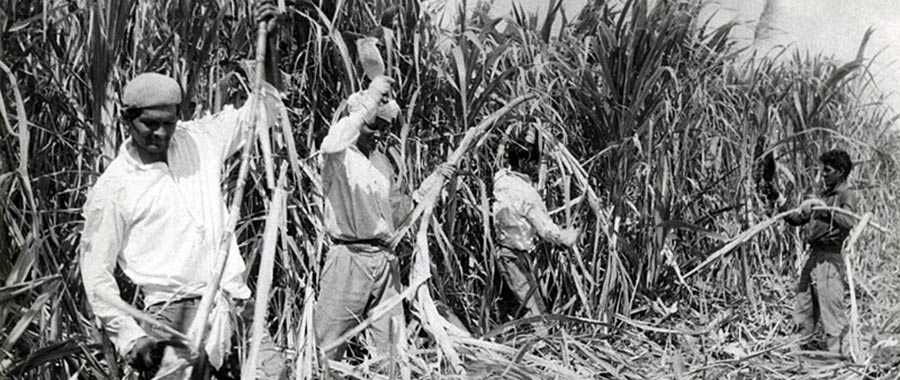In an era increasingly defined by awareness and activism, the adage “Know Sugar, Know Slavery, Know Racism” reverberates with profound implications. This phrase encapsulates the intricate web of socio-economic structures that have historically shaped the globe. By examining the intersections of sugar, slavery, and racism, we delve into the heart of systemic injustices that continue to plague our contemporary society. Through a Bahá’í lens, one can explore the teachings that illuminate these connections and advocate for profound societal transformation.
To begin our exploration, it is essential to recognize sugar not solely as a commodity, but rather as a symbol of desire and exploitation. Historically, sugar has been intertwined with the brutal practices of slavery. The sugar industry, which burgeoned in the 17th century, was largely sustained by enslaved African laborers subjected to inhumane conditions on plantations. The sweetness of sugar comes at a bitter cost, one that persists through generational trauma and systemic inequality. Thus, sugar can be viewed as a metaphorical lens through which we can scrutinize broader issues of humanity, human rights, and ethical consumption.
As one peels away the layers of this metaphor, the connection between sugar and slavery becomes starkly clear. The commodification of human beings, the exploitation of labor, and the dehumanization inherent in slavery are reflected in contemporary industries that continue to thrive on inequality. Today, the legacy of sugar cultivation is evident in modern supply chains, where issues such as child labor and unfair wages are too often overlooked. By acknowledging these transgressions, individuals are invited to dismantle these inequitable systems and consciously participate in a more equitable economy.
Furthermore, the relationship between sugar and racism is deeply entrenched. Racism, in its many forms, has been a pervasive force throughout human history, perpetuating disparities not only in economic wealth but also in social structure and access to resources. The racial hierarchy established during the transatlantic slave trade has had lasting repercussions, affecting generations of individuals who are marginalized due to the color of their skin. This systemic racism is further exemplified through the sugar industry’s modern practices, which often result in communities of color being disproportionately affected by exploitation, health disparities, and environmental degradation.
As Bahá’ís, the concept of oneness serves as a fundamental principle that encourages collective upliftment and justice. This teaching is inherently tied to the idea that every individual, regardless of race or background, deserves the opportunity to thrive. Understanding the intertwined fates of sugar, slavery, and racism calls for an awakening to the injustices embedded within popular consumption patterns. It compels one to embrace the notion that our actions—too often trivialized in everyday consumerism—can significantly contribute to systemic change. Challenging systemic racism requires a conscious decision to advocate for ethical alternatives, promote fair trade practices, and support marginalized communities.
Moving beyond individual consumption, it is vital to extend this understanding to community engagement. By fostering education and dialogue around these interconnected challenges, we can cultivate a collective consciousness aimed at rectifying historical wrongs and promoting inclusivity. Bahá’í teachings encourage the empowerment of marginalized voices; thus, educating oneself and others becomes an essential step towards dismantling the very structures that support exploitation.
Moreover, this critical examination can extend into the realm of public policy and activism. Advocacy for legislative changes that address labor rights, economic justice, and environmental concerns is crucial. As the legacies of sugar, slavery, and racism become illuminated through this collective effort, we create pathways for systemic reform. The Bahá’í principle of consultation encourages collaboration and inclusivity, enabling communities to come together in pursuit of shared goals that affirm dignity and justice for all.
In addition to activism and advocacy, the integration of art and culture serves as a powerful medium for illustrating the interconnectedness of these complex issues. Through storytelling, visual art, and performance, artists can engage audiences in reflecting on the profound implications of sugar, slavery, and racism. Such artistic representations not only shine a light on often-elided histories, but also offer a space for healing, empathy, and understanding. In this way, culture becomes a vessel for transformation, inviting viewers to reconsider their roles within the narrative of humanity and challenge the status quo.
As we navigate the complexities of our world, recognizing the interconnectedness of sugar, slavery, and racism is paramount in realizing systemic change. The Bahá’í viewpoint emphasizes the necessity of nurturing an enduring sense of justice, equity, and unity. By fostering a holistic understanding of these themes, individuals can transcend the bounds of their immediate experiences and acknowledge the broader implications of their choices.
In conclusion, the teachings surrounding the phrase “Know Sugar, Know Slavery, Know Racism” extend far beyond mere awareness; they beckon a collective call to action. As we endeavor to understand the nuances of this interconnected historical legacy, we are reminded of our shared humanity and the responsibility we bear to create a more just and equitable world. This journey towards awareness, action, and solidarity is where the unique appeal of Bahá’í teachings resonates profoundly, guiding individuals and communities on a path towards holistic transformation.
